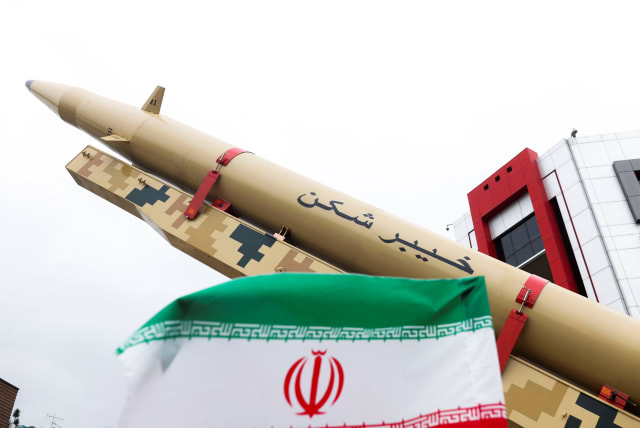Iran looks for a plan on day 17 of the war – analysis

In a search to find a way to keep their initiative against Israel going, Iran has tried to mobilize militias in Iraq, Syria and Yemen.
Iran was searching for a way to keep the initiative against Israel on Monday, the 17th day of the war. It has tried to mobilize the militaries in Iraq, Syria, and Yemen, and it has enabled Hezbollah to carry out daily attacks.The number of Hezbollah attacks had lessened on Monday, however, and Hezbollah has lost up to 30 of its members in two weeks of fighting.
Hamas reached out to Iran overnight between Sunday and Monday, and Tehran said it would seek to help Hamas in some way. Clearly, Iran is concerned its Gaza Strip proxy might lose out.
For this reason, Iran has tried to get the Houthis in Yemen, which is 2,000 km. from Israel, to enter the fighting. When a US ship intercepted their wide-ranging drone and missile attack over the Red Sea, however, this might have made Tehran think twice. This is because Iran has reconciled with Saudi Arabia, and if the Houthis decide to increase the attacks, this could unsettle Riyadh.
What come next from Tehran
What comes next from Tehran? Iranian media on Monday did include articles slamming Israel. They included the usual threats against Israeli cities. One article included comments by Islamic Revolutionary Guard Corps Deputy Commander Ali Fadavi, claiming Hamas has not lost very many of its members in the two weeks of fighting.
Pro-Iranian regime media has shifted to portraying Israel as internally divided. This is how Iran portrayed Israel before the October 7 attack. Tehran wanted to unite its proxies against what it saw as an Israel that was divided. But Israel is unified.
Iran and its Hezbollah proxy have increased their focus on the US. Tehran blames the US for Israel’s actions and wants to mobilize the region against the Americans. It clearly wants to work with Russia and China on this issue. Russia’s foreign minister is coming to Iran.
But Israel is also receiving a plethora of support from Europe. Iran can read the media in the Gulf and in Israel. It thinks the US is pressuring Israel against a ground operation. It also knows that voices in the Gulf may be analyzing the conflict and considering that Israel could end Hamas’s rule in Gaza.
This appeared to be Iran’s main concern on Monday. It wonders if the tide is now turning against its initiative. It has sought to dominate the board for two weeks, moving its proxies like pawns to strike at Israel and the US. Tehran’s next move now lacks clarity, and it knows this.
Jerusalem Post Store
`; document.getElementById("linkPremium").innerHTML = cont; var divWithLink = document.getElementById("premium-link"); if (divWithLink !== null && divWithLink !== 'undefined') { divWithLink.style.border = "solid 1px #cb0f3e"; divWithLink.style.textAlign = "center"; divWithLink.style.marginBottom = "15px"; divWithLink.style.marginTop = "15px"; divWithLink.style.width = "100%"; divWithLink.style.backgroundColor = "#122952"; divWithLink.style.color = "#ffffff"; divWithLink.style.lineHeight = "1.5"; } } (function (v, i) { });

